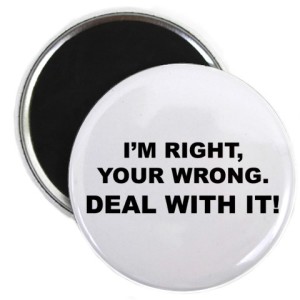Talking with a local pastor over coffee this past week, he lamented about a growing schism in his denomination in which large numbers of conservatives were leaving the denomination. He didn’t go into detail, but I suspect that the issue behind the conflict was the inclusion and ordination of gays and lesbians.
I commented to the pastor that schisms such as this appear to be not only a denominational concern, but also a cultural, political, national, even global phenomenon. Consider, for example, the gridlock in Washington over almost any issue, the intensity of feelings locally and globally around a host of hot-button issues such as abortion or marriage equality, the incessant vitriol aimed at our president as well as at his detractors, and the rise of radical fundamentalism in the Christian and Muslim world, just to name a few.
 Ideological differences today no longer seem to prompt debate. More often they prompt labeling and moralizing. When that happens, we simply entrench ourselves and fortify our position. Differences become reasons for divisions rather than opportunities for discussion and learning.
Ideological differences today no longer seem to prompt debate. More often they prompt labeling and moralizing. When that happens, we simply entrench ourselves and fortify our position. Differences become reasons for divisions rather than opportunities for discussion and learning.
A news commentator said recently, “Financial uncertainty creates moral crisis.” That is, when we perceive that something dear to us is falling apart, we want to find someone to blame for the situation. When things feel shaky, it is human nature to try to nail things down, to impose certainty wherever we can in order to establish an illusion of control, comfort, and safety.
One of our methods of imposing certainty is to label something or someone as good or bad, right or wrong, decent or indecent. Once labeled, we can feel good about aligning ourselves with the people and issues that fit our criteria.
This labeling and moralizing pertains to events as well. This past week, when my daughter called to say she just lost her job, my first reaction was, “Oh no, that’s terrible!” I used more colorful language, but that was the sentiment. After some reflection though, I remembered than some such “Oh no!” events in my life turned out to be some of my best opportunities for learning, growth, and new opportunities. I didn’t and still don’t have the wisdom to know if something is good or bad because I have no idea how something will ultimately turn out.
When I overheard an acquaintance say a few days ago, “Our society has been in free fall for quite some time,” I thought, one person’s “free fall” is likely another person’s “finally, the right direction!” We see from our own perspective and we’re simply not wise enough to know how it will turn out.
These ideological divisions are not new, but a new level of paranoia and hostility seems to be at work. Today anyone, from a bullied teenager to a billionaire financing a Super PAC, can spin or even invent a story, send it around the world instantly on-line, and then sit back and enjoy the reactions without experiencing any personal consequences. That reality alone makes the situation today more potentially volatile.
That places a greater responsibility on each of us to question the source and challenge the motivation of the many divisive statements we hear. If we don’t, we contribute to the hostility and miss a chance to learn something.
 As a grief counselor, I recognized how important it was for the grieving person to fall apart occasionally. Life is like that. It comes together, it falls apart, it comes back together, and falls apart again. Our task is not to nail everything down. Our task is to be as fully aware of the falling apart as we are of the coming together. Both phases of the process possess vital lessons for living.
As a grief counselor, I recognized how important it was for the grieving person to fall apart occasionally. Life is like that. It comes together, it falls apart, it comes back together, and falls apart again. Our task is not to nail everything down. Our task is to be as fully aware of the falling apart as we are of the coming together. Both phases of the process possess vital lessons for living.
Back to the denominational schism. The Apostle Paul wrote regarding divisions in the early church, “…there is neither Jew nor Greek, slave or free, male or female.” Those were the hot topics of his day, the things people fought about. Today I suspect he would write, “…there is neither Black nor White, gay nor straight, liberal nor conservative.”
What a thought.
0 Comments until now
Add your Comment!